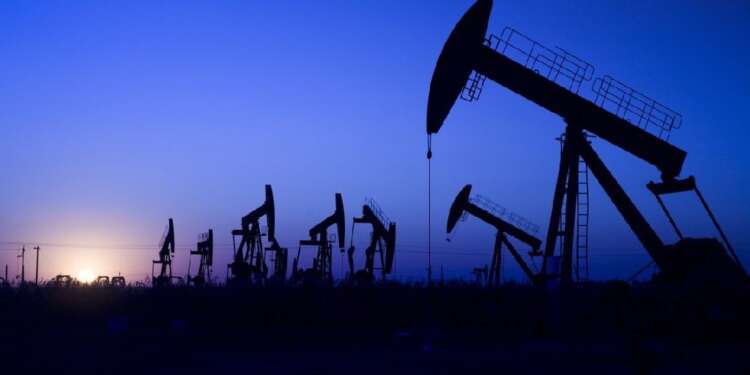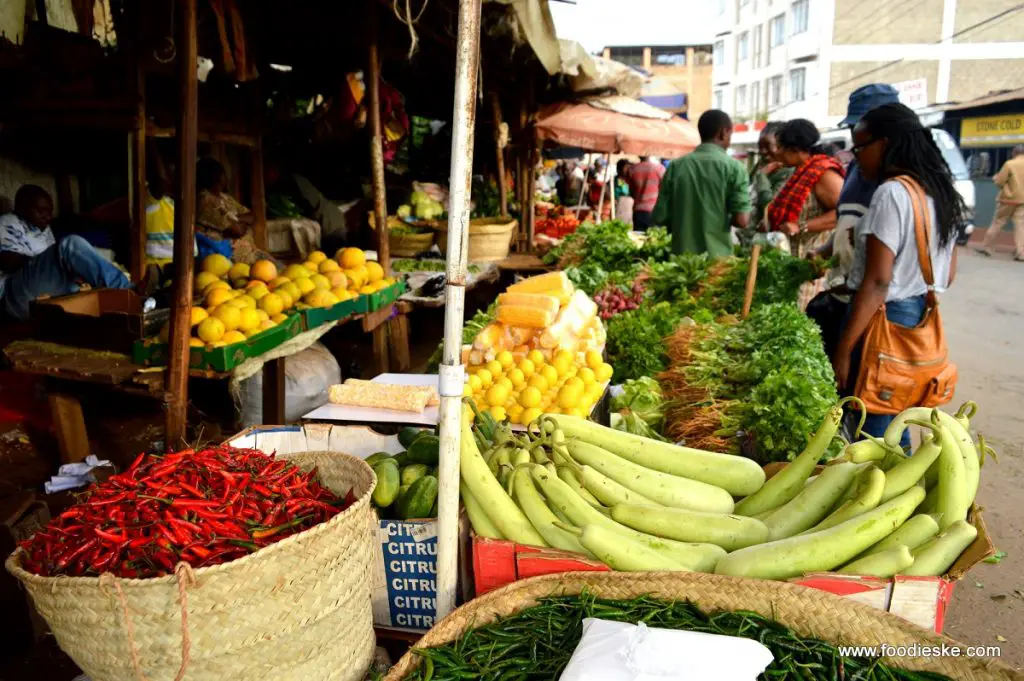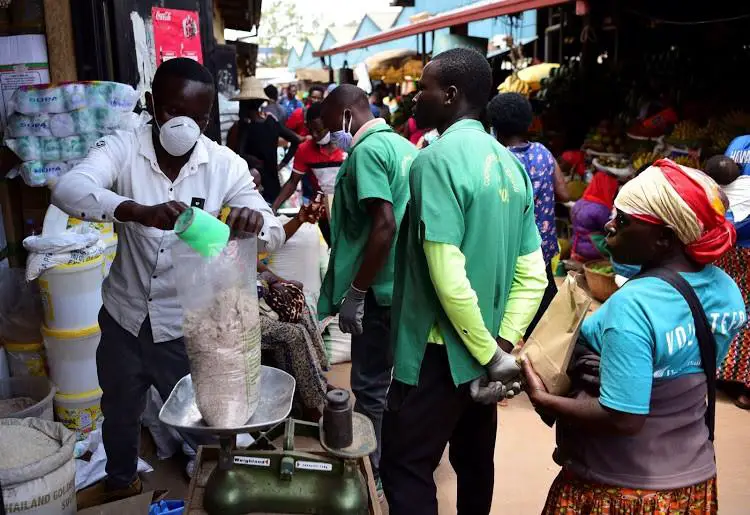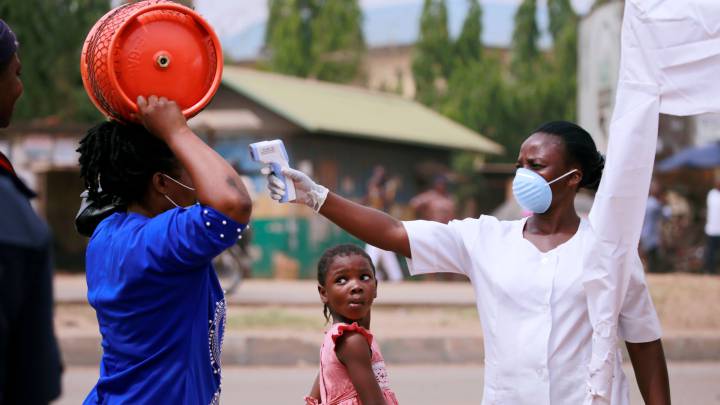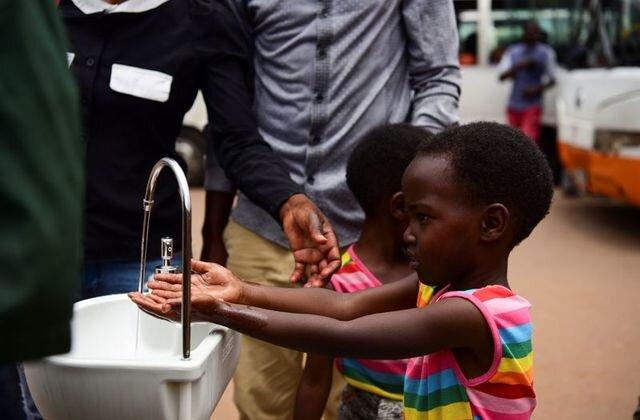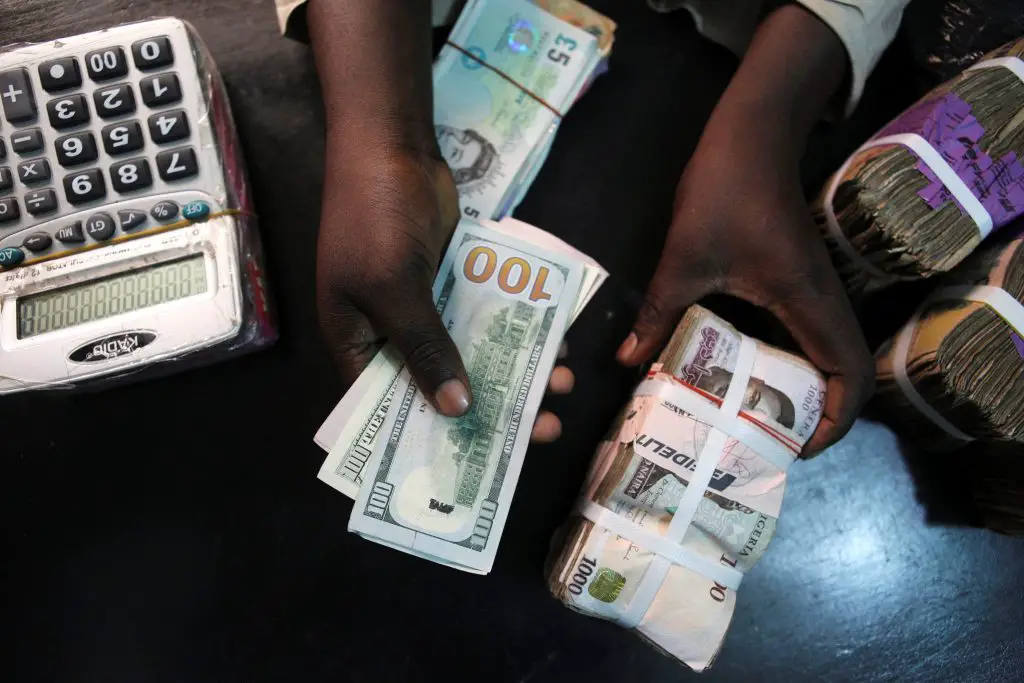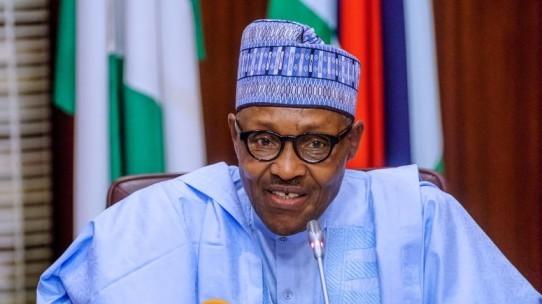- Africa’s new dawn: the rising role of digital and AI in agriculture
- Can Dangote Refinery Transform Africa Energy Ambition
- Gallup Survey: 80 per cent of Kenyan Workers Are Disengaged and Seek New Opportunities
- Madagascar Man Freed from 5KG Tumor After 15-Year Struggle
- How women in Africa are perceived and treated
- Sugar consumption in Kenya to Increase to 1.23 Million Tonnes
- Can Somalia and Turkey Oil deal Bring Change in Somaliland
- Remittances to Kenya dropped to $371.6 million in June, marking a six month low
Browsing: IMF
The East African coronavirus (COVID-19) battle has been fortified with $1.23 billion from the International Monetary Fund (IMF).
Both Kenya and Uganda have so far confirmed more than 600 cases of the virus.
COVID-19 Funding in Kenya
According to the IMF statement, on Wednesday the IMF Executive Board approved the disbursement of SDR542.8 million (100 per cent of quota, about US$739 million) to be drawn under the Rapid Credit Facility (RCF).
“This will help to meet Kenya’s urgent balance of payments need stemming from the outbreak of the COVID-19 pandemic,” The statement read in part.
The impact of COVID-19 on the Kenyan economy will be severe. It will act through both global and domestic channels, and downside risks remain large.
The Kenyan authorities have taken decisive action to respond to the pandemic’s health and economic impacts, the sudden shock has left Kenya with significant fiscal and external financing needs. Authorities …
Oil prices have plummeted heralding a tough time ahead- at least in the foreseeable near future- for oil exporters in Africa.
The chaos started when Saudi Arabia and Russia disagreed over production cuts leading to the oil price war which has led to the huge oil price drops the last of which were witnessed the 1991 Gulf War.
This tiff came after Russia refused to cut production as requested by the Organisation of the Petroleum Exporting Countries (OPEC) due to the reduced oil demand occasioned by the Covid-19 coronavirus pandemic. With Saudi Arabia retaliating, the world is now experiencing the biggest drop in oil prices to around $30 per barrel.
Africa’s most affected sectors, hope for survival
While this is happening miles away from Africa, oil exporters on the continent have not been spared. Nigeria and Angola are particularly affected with their economies registering the negative effects of the slump …
A WFP projection shows that some 265 million people in low and middle-income countries will be in acute food insecurity by the end of 2020. This is unless swift action is taken to ensure that food security is guaranteed.
Ironically, a majority of people who suffered acute food insecurity in 2019 were in countries affected by conflict at 77 million, climate change affected 34 million while economic crises hit 24 million people hard according to the Global Report on Food Crises.
In Africa, the Democratic Republic of the Congo, Ethiopia, South Sudan, the Sudan and Nigeria are among 10 countries globally that constituted the worst food crises in 2019.
Starvation, death threaten Horn of Africa stability
61 per cent of South Sudan’s population was in a state of food crisis while the Central African Republic, Sudan and Zimbabwe had at least 35 per cent of their populations in a state …
Africa, the world’s second-fastest-growing region might drive a third of 440 it’s formal and informal workers in unemployment, as the region rolls in lockdowns that sweep away people’s means to earn their income, according to McKinsey.
As the virus threats keep on taking new shapes, Mckinsey Finding Africa’s Path report entails that report, between 9 million and 18 million of Africa’s 140 human capital informal sector could lose their jobs.
The report also noted that a further 30 million to 35 million could see a reduction in wages and working hours, as one hundred million of the 300 million informal jobs in Africa are at risk.
Already the virus has hurt other decent-paying and highly labour concentrated sectors in the region such as manufacturing, retail and wholesale, tourism, and construction, as jobs of more than half of the workforce could be lost, the report highlighted.
The virus which has already …
Tunisia, one of Africa’s top exotic tourists’ destinations fate is hanging in the balance, due to the novel coronavirus (COVID-19) pandemic threatening the sector, as more than $1.4 billion and 400,000 jobs are at stake.
According to information from Reuters, an official document showed Tunisia seeking a loan guarantee from bilateral partners to issue sovereign bonds this year.
Further, Reuters highlighted that, in a letter sent to the International Monetary Fund (IMF), Tunisia’s central bank governor and finance minister said the country’s economy would shrink by up to 4.3 per cent, the steepest drop since the nation’s independence in 1956.
The IMF, which approved on Friday a $745 million loan to Tunisia to counter the consequences of the coronavirus, said a new funding programme with Tunisia could start in the second half of this year.
Hence, the size of the new programme remains unknown.
Earlier this year, the Tunisian Minister …
On Monday, the Executive Board of the International Monetary Fund (IMF) approved the immediate debt service relief of 25 of IMF’s member countries under the IMF’s revamped Catastrophe Containment and Relief Trust (CCRT) as part of the fund’s response to help deal with the impacts of the contagious Coronavirus (COVID-19) pandemic.
According to a statement provided by the lender, the funds go after the world’s poorest and most vulnerable members to cover their IMF debt obligations for an initial phase over the next six months.
Further—IMF highlighted that the debt relief will help these 25 nations to channel more of their scarce financial resources towards vital emergency medical and other relief efforts.
IMF’s Managing Director Ms Kristalina Georgieva, said “The CCRT can currently provide about US$500 million in grant-based debt service relief, including the recent US$185 million pledge by the U.K. and US$100 million provided by Japan as immediately available …
Nigeria, Africa’s populous and largest economy is planning to raise about $6.9 billion from various multilateral lenders to assist their efforts towards curbing the spread of the novel coronavirus (COVID-19).
According to information from Bloomberg, the nation’s Finance Minister Zainab Ahmed told reporters Monday in the capital, Abuja that, the government will seek $3.4 billion from the International Monetary Fund (IMF), $2.5 billion from the World Bank and a further $1 billion.
The highly contagious pandemic has hit the region’s largest economy hard as plummeting oil prices and capital flight threaten to push the economy into recession. Nigeria has reported over 230 cases of the coronavirus and 5 deaths so far.
Bloomberg reported that Fitch Ratings earlier on Monday followed S&P’s March 26 decision to downgrade Nigeria’s credit rating further into junk territory, citing its dependence on oil, which represent about half of the government revenue.
However, Nonso Obikili, head …
Rwanda coronavirus (COVID-19) containment landscape just got stronger as the Executive Board of the International Monetary Fund (IMF) on Thursday approved the disbursement of $109.4 million to be drawn under the Rapid Credit Facility (RCF), IMF statement said.
According to information from the IMF, this will serve to meet Rwanda’s urgent balance of payment needs stemming from the outbreak of the COVID-19 pandemic.
Rwanda is one of the East African nations to be hurt by the pandemic, whereby—COVID-19 cases stand at 84.
The lender noted that the economic impact of the COVID-19 pandemic is rapidly unfolding, with the near-term outlook deteriorating quickly.
According to the IMF statement, the pandemic has triggered a rise to significant fiscal and external financing needs.
Hence, in curbing possible devastating impacts of the outbreak, authorities have acted fast by putting in place measures to help contain and mitigate the spread of the disease.
According to …
African nations (via their ministers) have agreed to call a debt relief support from bilateral, multilateral and commercial partners with the support of the multilateral and bilateral financial institutions such as the International Monetary Fund (IMF), the World Bank Group, and European Union (EU), amid coronavirus outbreak (COVID-19) United Nations Economic Commission for Africa (UNECA) revealed in a statement.
The agreement was germinated from the second virtual meeting on Tuesday, hosted by Vera Songwe, Executive Secretary of the Economic Commission for Africa, and co-chaired by Ministers Tito Mboweni of South Africa and Ken Ofori-Atta of Ghana.
The meeting stressed the need to take possible actions to downplay and bring the spread of COVID-19 under control in the short term.
“The call for debt relief, it was emphasized, should be for all of Africa and should be undertaken in a coordinated and collaborative way. They called for a special purpose vehicle …
Nigeria has just become the leading nation with the largest economy in Africa, after South Africa recent economic slump, when its economy contracted and sliding into a second recession in two years.
South Africa and Nigeria make up almost half of sub-Saharan Africa’s Gross Domestic Product (GDP).
While South Africa statistics office highlighted bad news for the nation, suffering from power crisis, Nigeria statistician showed a rather positive performance of the economy, which grew at about 2.55 per cent in the fourth quarter of 2019.
This growth was the highest quarterly performance since the 2016 recession. It is argued that Nigeria’s economic growth was anchored on its oil exports with production levels remaining stable throughout 2019.
The South African economy shrank by 1.4 per cent in the fourth quarter of 2019, this followed a contraction of 0.8 per cent, which points to the fact that—the second-largest economy in Africa floated …






